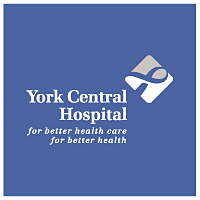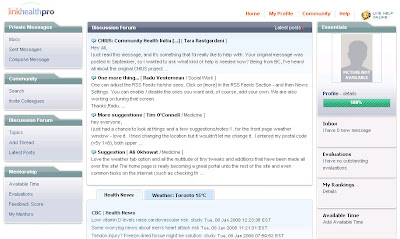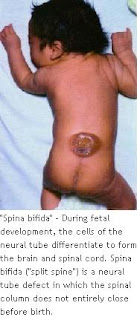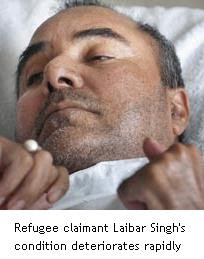As part of building capacity at York Central Hospital in Richmond Hill, Ontario, a strategy was created to enhance the learning environment for staff, attract staff to the organization and reduce the significant turnover within the first year. To this end a dynamic mentorship program, the first of its kind in Canada, was created supported by the Ministry of Health and Long-Term Care inter-professional education initiative and York Central Hospital (YCH) Foundation. “The mentorship program has been extremely successful in recruiting and retaining staff nurses,” says Interim Professional Practice Leader Audrey Sheridan. “Many new graduates told us that they chose YCH over other hospitals because of the mentorship program. This multifaceted program includes a number of components including mentorship development; supernumerary time for mentor support of newly hired staff; extended program development support for both experienced and new graduate staff; clinical fellowships; specialty certifications; national certifications and degree support bursaries. Following the in-class portion, new nursing hires are assigned mentors and begin working with them on their specific nursing services. Further development components related to relationships include: providing and receiving feedback, responding to emotionally charged situations, building trust and Patient Focused Care which was based on the RNAO’s BPGs for Client Centered Care, Therapeutic Relationships and Leadership. Read the rest of the story here Editor's opinion:
It speaks volumes about the value the organization places on nursing, both experienced and new graduates. The mentorship program has truly been a catalyst for YCH, raising the bar for nursing education and clinical development across the organization.”
Recently, I came across a virtual community for health care Professionals that has a built-in mentorship program.
Health care professionals can share their knowledge in various ways on that community, such as on a forum and via private messaging.
It's called LinkHealthPro and is free to sign on. ”
Tuesday, January 8, 2008
Unique mentorship program started in York Central Hospital
Posted by
Guy Derla
at
4:04 PM
0
comments
![]()
Tags: Canadian health care, health care professional network, health care professionals, LinkHealthPro, Mentorship, sharing knowledge
Friday, January 4, 2008
Folic Acid should be used also BEFORE pregnancy
Health care professionals are urging women who could become pregnant to up their intake of folic acid.
A panel of experts from the Society of Obstetricians and Gynecologists of Canada and Toronto's Hospital for Sick Children, along with Health Canada say certain birth defects can be prevented if women who become pregnant are taking proper amounts of folic acid.
Canada and Toronto's Hospital for Sick Children, along with Health Canada say certain birth defects can be prevented if women who become pregnant are taking proper amounts of folic acid.
According to Health Canada, folic acid is important in the normal development of a baby's spine, brain and skull and can prevent defects such as spina bifida.
It is recommended that women take a supplement of 0.4 milligrams of folic acid daily, along with eating sufficient amounts of foods fortified with folic acid such as spinach, broccoli, corn, oranges, peas, beans and lentils.
The supplement should be taken at least three months prior to becoming pregnant and should continue to be taken through the first three months of pregnancy.
"Folic acid becomes critical near the end of the first month of pregnancy," said Heather McAvoy, public health nutritionist at the Prince Albert Parkland Health Region
"Often women don't even realize they are pregnant at this time so it's important to have already been taking the supplement."
McAvoy also pointed out that some women are at a higher risk of having a baby with a birth defect.
"If you have had neural tube defect pregnancy, or have a family history of that problem, or if you have diabetes, epilepsy or you are overweight, you should consult a doctor before planning a pregnancy,"
Source: P.A. Daily Herald
Posted by
Guy Derla
at
11:08 AM
0
comments
![]()
Tags: baby, birth defects, folic acid, Health Canada, health care professionals, pregnancy, pregnant, sick kids, Society of Obstetricians and Gynecologists of Canada
Monday, December 24, 2007
 The front line warriors in the pending war against the next global epidemic will carry stethoscopes and wear lab coats, and in the case of Dr. Thomas Tsang, spectacles.
The front line warriors in the pending war against the next global epidemic will carry stethoscopes and wear lab coats, and in the case of Dr. Thomas Tsang, spectacles.
And it is likely Hong Kong will be the battleground.
The mild-mannered Tsang is considered one of the world's foremost experts in fighting the devastating Severe Acute Respiratory Syndrome (SARS) virus that killed 299 people in Hong Kong and spread to Toronto in 2003.
Tsang has a huge responsibility on his hands. He is the key doctor in the Hong Kong Special Administrative Region charged with ensuring the next viral outbreak, in whatever form or mutation, doesn't happen.
And if Canadians are to prevent the next tragedy, they would be wise to see what lessons have been learned in trying to stop one of the world's most deadly diseases.
"You never know what's going to happen tomorrow," Tsang said in an interview in his boardroom, which was the initial nerve centre to create a SARS response strategy during the 2003 crisis."You have to have a plan ready," he said. "It's not just sufficient to have a plan, you must execute it."
The normally bustling cosmopolitan financial gateway to Asia was at a standstill in 2003. Business and tourism were hardest hit by SARS which infected 1,755 residents and killed 299 from March 11 to June 6 that year.
Health-care workers and officials fought day in and day out to stop the spread of SARS.
Similar scenarios were carried out in Toronto and elsewhere in Canada where 438 people were infected, and 44 died of SARS from Feb. 23 to June 7, 2003.
SARS has been a wakeup call for health-care workers in Toronto.
Dr. Allison McGeer, director of Infection Control at Mount Sinai, said Canadians have learned from the crisis.
"There's been a number of changes in hospitals, such as guidelines for infection control, educating staff in dealing with infectious diseases, strengthening links between public health departments and hospitals, and working together more smoothly," McGeer said.
Read the full story here
Posted by
Guy Derla
at
9:50 AM
0
comments
![]()
Tags: Canada, deadly disease, health care professionals, health care workers, Hong Kong, hospitals, pandemic, SARS, Toronto
Wednesday, December 19, 2007
Goverment criticized about care refugee claimant Singh
 Volunteers are caring for quadriplegic refugee claimant Laibar Singh 24 hours a day, but it is unclear how many of them have formal medical training, despite his supporters' assertions that he needs access to Canada's top-notch medical care.
Volunteers are caring for quadriplegic refugee claimant Laibar Singh 24 hours a day, but it is unclear how many of them have formal medical training, despite his supporters' assertions that he needs access to Canada's top-notch medical care.
Harjap Grewal, a spokesman for Mr. Singh and refugee advocate with No One is Illegal, said in an interview that hundreds have volunteered to care for Mr. Singh since an aneurysm left him paralyzed, but he did not provide specific numbers of formally trained people who have been tending to him.
He said that a maximum of 10 people with training as nurses or doctors have volunteered to care for Mr. Singh, but that most volunteers are not health-care professionals. They have been helping him with needs such as hygiene and going to the bathroom that he cannot handle himself.
Mr. Grewal added that Mr. Singh would not receive the treatment he needs in India because neither he nor his children can afford to pay for it.
"A lot of people have the means to make sure that he gets that care here," he said.
Harsha Walia, also with No One is Illegal, said that money for Mr. Singh's care has come through community donations. For example, Maninder Gill, owner of Radio India, has donated $5,000 toward his care.
When asked why such donations could not be used to pay for private health care in India, Mr. Singh's home country, Ms. Walia said his case is a "simple issue of justice and humanity."
"If that argument were to be made that everyone here that's in need of care just raised money and went somewhere else, it defies a basic value of human dignity," she said. "His wish is that he feels safe here. He chooses to be with his community here."
Read the rest of the story here
"His condition just deteriorates rapidly every time he's put through this game that the government's playing...................................."
GlobeAndMail
Posted by
Guy Derla
at
2:43 PM
0
comments
![]()
Tags: aneurysm, Canadian health care system, doctors, government, health care, health care professionals, nurses, Singh
Monday, December 17, 2007
Another story from a client of our great health care system
 "Here's yet another positive story, after last week's story from Mofi about the Canadian Health care system:"
"Here's yet another positive story, after last week's story from Mofi about the Canadian Health care system:"
"Two significant things happened to me last week. I turned 39 and I found out I need total hip replacement surgery. These are two things that I never dreamed would happen within a decade of each other, let alone a week.
I've had some issues with my right hip most of my adult life, but never imagined that I had osteoarthritis and that my hip joint was deteriorating out from under me. My dad had both his knees replaced, but that didn't happen until he was in his late 60s.
Finding out that you need this kind of surgery is a shock at first. I felt a little embarrassed to be so young and need something like this. After some research, however, I realized more and more young people are having the surgery.
Former U.S. Olympic gold-medal winning gymnast Mary Lou Retton had her hip replaced at the age of 38. And world-famous tennis champion Jimmy Connors had his hip replaced at 52. Both athletes reported being debilitated by their pain and then regaining their full quality of life after the surgery.
So, now that I am beyond the shock and embarrassment, I find myself in a state of amazement at just how far we have come in medicine and how great Canada's health system is. Had I been born in my grandmother's era, I would be facing a life of pain and the inevitability of a wheelchair. Now, just like something out of the 1970's Bionic Woman series, they tell you "we have the power to rebuild you." Maybe not better or faster than I was before, but with much less pain and much more mobility.
I know we all get frustrated with our wait times, but if we compare our system with those around the world, we have one of the best. Two things always enter my mind when I am accessing our health care system: the incredible care givers I have, and the cost of my care.
My family doctor is Dawn Edgar. She has been caring for me for about 12 years and knows everything about me, so my health care is personal and focused and I realize how lucky I am to have her.
As soon as my hip acted up she got me in to see Reginald Yabsley. He was the first orthopedic surgeon to do hip replacements in Nova Scotia. How lucky we are to have someone like him in Halifax.
His bedside manner is second to none. He has a no-nonsense, pragmatic approach that completely put me at ease. Through the entire appointment I felt informed and respected as we figured out my next move.
My feelings of comfort and joy stem not only from being in the hands of these two excellent doctors, but from not having to ask the question: How much will this cost?
I know that while I will wait for the surgery, I will be able to have it based on my need, not on what I can afford. So this holiday season I will be saying an extra prayer for all those care givers in our system who help us maintain our quality of life and for a system that is based on need, and not greed."
Candy Palmater for HFXNEWS
Posted by
Guy Derla
at
10:16 AM
0
comments
![]()
Tags: Canadian health care, Canadian health care system, caregivers, Halifax, health, health care, health care professionals, surgery
Friday, December 14, 2007
Victorian Order of Nurses to be made redundant
 After 110 years of service to the community, the Victorian Order of Nurses were told Tuesday they were disqualified from the tendering process that will decide home care nursing services in the Hamilton region without further reasons.
After 110 years of service to the community, the Victorian Order of Nurses were told Tuesday they were disqualified from the tendering process that will decide home care nursing services in the Hamilton region without further reasons.
About 100 VON nursing and administrative staff will be without a job next April, many after lengthy careers delivering home care to patients in the Hamilton region.
VON Hamilton recently was given the Hamilton Spectator Gold Reader's Choice Award in the home healthcare category.
VON is the second agency to find out its services were no longer wanted this week.
On Monday St. Joseph's Home Care was told they were similarly disqualified.
Together, the two largest not-for-profit agencies in the region provide about 80 percent of home nursing care in the region.
"Health minister George Smitherman has delivered a lump of coal into the stocking of almost every home care nurse and patient in the Hamilton area," says Warren (Smokey) Thomas, President of the Ontario Public Service Employees Union (OPSEU) which represents the VON workers.
Hamilton home care patients will likely experience disruption to their care during the changeover. In Niagara, where the VON lost the home care contract in 2004, winning agencies struggled to hire enough staff, leaving many patients in a precarious position.
The agencies are among the first in the province to lose home care work as the three-year moratorium on competitive bidding was lifted this fall.
VON workers were told the news at a meeting Wednesday morning.
Luckily, there is also good news.
Recently, VON has been awarded a contract, with Department of Veteran Affairs (VAC), to provide nursing assessment and nursing advisory services on an as needed basis for the province of Saskatchewan.
The five-year contract will begin with the training of VON nurses.
VON will conduct nursing assessment services for VAC clients in their homes or the facilities in which the clients reside.
They will also provide advice on a wide variety of nursing issues related to the care of adult and older clients including mini-mental status, levels of depression, pain and possible placement issues and will prepare reports on the health status and medical needs of the client, which will be submitted to the VAC for review and action.
Source: VON and MarketwireEditor's opinion:
"How's that for a Christmas present?
Who's going to take care of these poor nurses now?
Unbelievable that it's possible in Canada to be just laid off without further notice!
When you're always taking care of others, it must be hard to believe that the government is not taking care of you and totally disregards the quality award you just deserved."
Posted by
Guy Derla
at
10:27 AM
0
comments
![]()
Tags: George Smitherman, Hamilton, health care professionals, healthcare, home care, lay off, nurses, Ontario, Victorian Order of Nurses
Higher dose of folic acid could reduce birth defects with 50%
 Women planning pregnancy should increase their intake of folic acid as much as possible since it could play a key role in reducing as many as half of certain birth defects, according to new guidelines released Wednesday.
Women planning pregnancy should increase their intake of folic acid as much as possible since it could play a key role in reducing as many as half of certain birth defects, according to new guidelines released Wednesday.
The recommendations were produced for health care professionals by a multidisciplinary panel of experts from the Society of Obstetricians and Gynecologists of Canada and Toronto's Hospital for Sick Children.
Women with no personal health risks, a planned pregnancy and a diet of foods rich in folate should take a multivitamin containing between 0.4 and one milligram of folic acid at least two to three months before conception and throughout pregnancy, the recommendations say.
However, women who are at higher risk, including those who are smokers, obese, diabetic or with previous history of spina bifida in the family should be supplementing their diet with multivitamins containing five milligrams of folic acid, three months prior to and up to 12 weeks following conception.
After the first 12 weeks, in both at-risk and normal pregnancies, women should take a multivitamin containing between 0.4 and one mg of folic acid, and keep taking it as long as breastfeeding continues.
Read the full story on CBC News
Posted by
Guy Derla
at
12:37 AM
0
comments
![]()
Tags: breastfeeding, folic acid, Gynecologist, health, health care professionals, Obstetrician, pregnancy, Toronto
